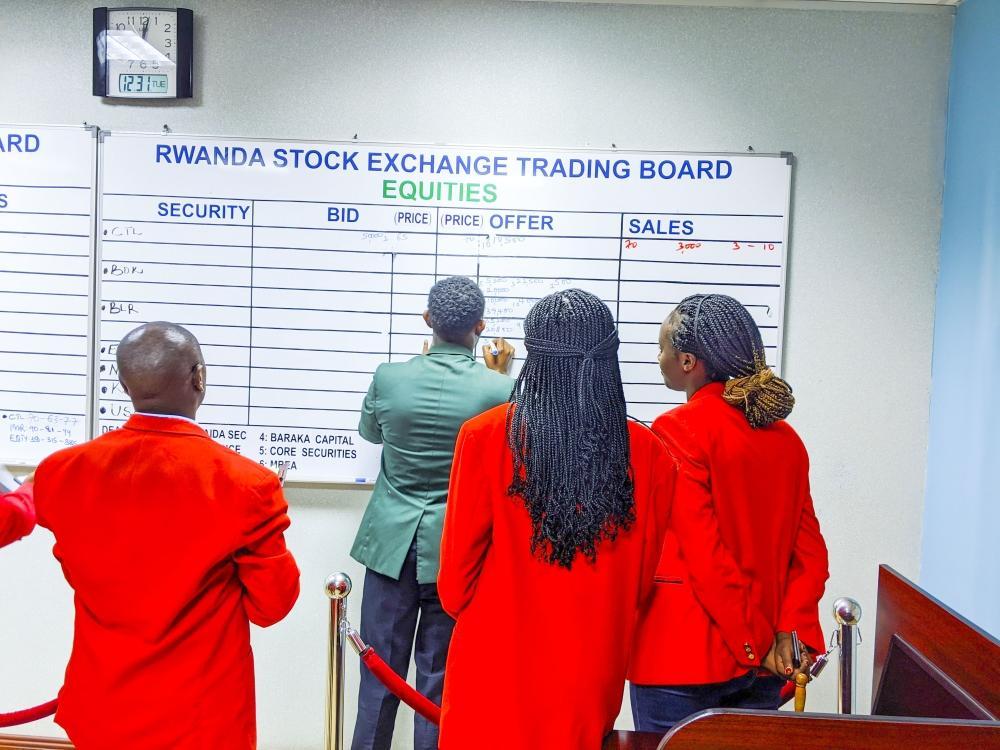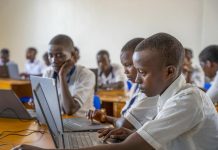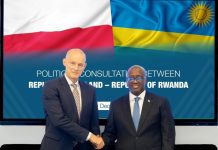Pierre-Célestin Rwabukumba
Africa-Press – Rwanda. When we speak of Africa’s green transition, we often think of solar panels lighting up villages, electric buses in our cities, or trees reclaiming degraded land. But there is another, quieter revolution underway in the world of finance.
Towards the end of November, Rwanda will launch the Green Exchange Window (GEW), a platform that may look technical on paper but carries a deeply human aspiration: to make finance work for people, for the planet, and for the shared prosperity of our continent.
The GEW is a dedicated platform that will be dedicated exclusively to green, social, and sustainability-linked financial instruments. Among the key roles of the platform include facilitating listing, trading and promoting these green products and services.
It is being launched under Rwanda Stock Exchange, in partnership with Kigali International Financial Center, as part of the country’s broader roadmap toward sustainable finance which was unveiled at COP28 in the United Arabs Emirates. This effort is by all means a signal that Africa, too, can lead in designing the financial systems that will define tomorrow’s economies.
A strong capital market anchors every thriving financial hub in the world. It is through the capital market that savings are turned into investments, risks are managed, and innovation is funded. As Rwanda aspires to become a continental financial center of record, the Rwanda Stock Exchange must evolve to reflect the priorities of our time. One of those priorities is clear: sustainability.
Over the past decade, global investors have been increasingly aligning their portfolios with environmental, social, and governance (ESG) principles. Platforms like the Luxembourg Green Exchange (LGX) have demonstrated potential or creating transparency, credibility, and accountability in sustainable finance.
Since its establishment in 2016, the LGX has grown into the world’s leading platform for sustainable securities, connecting issuers and investors who share a common mission to finance a better future.
In many ways, the GEW draws inspiration from that success. We have worked closely with the Luxembourg Stock Exchange in shaping this platform, learning from their experience while tailoring the model to Africa’s unique context. Our markets may differ in scale, but our ambitions are equally bold.
Through the GEW, we aim to create a credible and transparent environment where issuers right from governments to corporations and development banks can list green and sustainability-linked instruments with confidence, and where investors can channel funds into projects that genuinely make a positive impact.
Critically, we are looking at connecting real capital to real needs. When a green bond enables a utility company to invest in clean energy, it means more households can access affordable energy. When a sustainability-linked bond supports an agricultural project, it means more resilient livelihoods for farmers, and most importantly, a food secure-nation. When social bonds fund healthcare or education, it means better lives for families and communities. Finance, in this sense, becomes an enabler of dignity.
Rwanda’s experience offers a glimpse of what is possible. Over the past few years, more than Rwf70 billion has been raised through green and sustainability-linked bonds, including from institutions such as the Development Bank of Rwanda. These instruments have already demonstrated investor appetite and the potential for well-structured sustainable products in our region.
The Green Exchange Window will now provide a new home for such instruments which is built on rigorous standards, transparency, and verification.
Our vision extends beyond Rwanda. The launch of the GEW is a continental call to action. Africa’s capital markets must rise to meet the defining challenge of our generation: financing sustainable development on a large scale.
Africa’s infrastructure gap alone is estimated at hundreds of billions of dollars annually. Governments cannot close it alone. Development partners cannot fund it all. Private capital must be mobilized, and to do that, we need instruments and platforms that inspire trust.
The GEW aims to do just that. It will host green, social, and sustainability-linked products that comply with globally recognized standards while reflecting Africa’s developmental priorities. It will provide the credibility that institutional investors seek and the flexibility that our issuers need.
It will also encourage collaboration among African exchanges through the African Securities Exchanges Association (ASEA), which I currently have the honour of leading. Together, we can build a network of markets that channel capital toward climate resilience, clean energy, and inclusive growth.
As we embark on this journey, I am reminded that sustainable finance is not only about numbers. It is about values. It is about ensuring that as Africa develops, it does so without leaving its people or its planet behind. The Green Exchange Window serves a bridge between finance and sustainability, between local aspirations and global capital, and between today’s needs and tomorrow’s generations.
Africa’s story has always been one of resilience and reinvention. This is our moment to redefine what growth means and to prove that prosperity and sustainability are not opposing forces but complementary ones.
Source: The New Times
For More News And Analysis About Rwanda Follow Africa-Press






